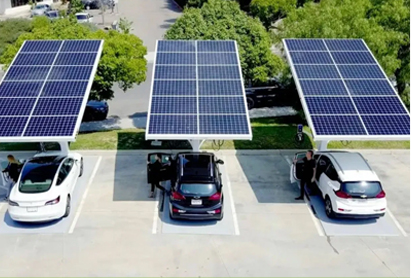
-
[email protected]

-
Building 1, No. 21 Shengfa Road, Lucheng District, Wenzhou, Zhejiang, China



Energy storage plays a crucial role in the transition towards renewable energy sources. These systems have gained widespread adoption due to their high energy density, long lifespan, and efficiency.
Li-Ion batteries are rechargeable energy storage devices that rely on lithium ions to store and release energy. The core principle behind these batteries is the movement of lithium ions between the positive and negative electrodes during charge and discharge cycles. This process allows for the efficient storage of electrical energy and its subsequent release when required.

Compared to other types of rechargeable batteries, such as pilot-acid or nickel-metal hydride (NiMH) batteries, Li-Ion batteries offer several key advantages. They have a higher energy density, meaning they can store more energy in a smaller space. They are also lighter, which makes them ideal for mobile applications such as electric vehicles (EVs) and portable electronics.
Li-Ion batteries are increasingly being used in energy storage systems for both residential and commercial applications. These systems store excess energy produced by renewable sources like solar or wind, making it available when production is low or demand is high. Some of the key benefits of using Li-Ion battery energy storage systems include:
Li-Ion battery storage systems have high round-trip efficiency, meaning they can store and release energy with small loss. This makes them more cost-effective over the long term compared to other storage technologies.
Li-Ion battery systems can be easily scaled to meet the needs of different applications. Whether it's a small-scale residential system or a large-scale commercial or industrial installation, Li-Ion batteries can be adapted to fit varying energy demands.
Li-Ion batteries have a relatively long lifespan, typically lasting for thousands of charge and discharge cycles. This longevity reduces the need for frequent replacements, contributing to lower maintenance costs over time.
Due to their high energy density, Li-Ion batteries are compact and lightweight, making them ideal for applications where space is limited. This feature is particularly beneficial in residential solar energy storage systems, where space for energy storage can be a concern.
Li-Ion battery energy storage systems are being utilized in a variety of applications, from homes to large-scale industrial projects. Below are some key areas where these systems are making an impact:
Homeowners who install solar panels often face the challenge of storing excess energy for use at night or during cloudy days. Li-Ion battery systems are ideal for this purpose, as they can store the energy generated by solar panels during the day and supply power when the sun is not shining. This allows homeowners to reduce their reliance on the grid and increase their energy independence.
The growing adoption of electric vehicles has been made possible by advancements in Li-Ion battery technology. These batteries provide the high energy density needed for long-range electric driving, and they can be easily integrated into the design of vehicles.
Li-Ion battery systems are being used by utility companies to store excess electricity produced during periods of low demand, which can then be released during peak demand times. This helps stabilize the grid and ensures a more consistent and reliable supply of electricity. In addition, battery storage systems can help integrate intermittent renewable energy sources like wind and solar into the grid.
Li-Ion lithium battery energy storage systems have proven to be a transformative technology in the field of energy storage. Their high efficiency, long lifespan, scalability, and compact design make them ideal for a wide range of applications, from residential energy storage to large-scale grid support.
Your email address will not be published. Required field are marked*
